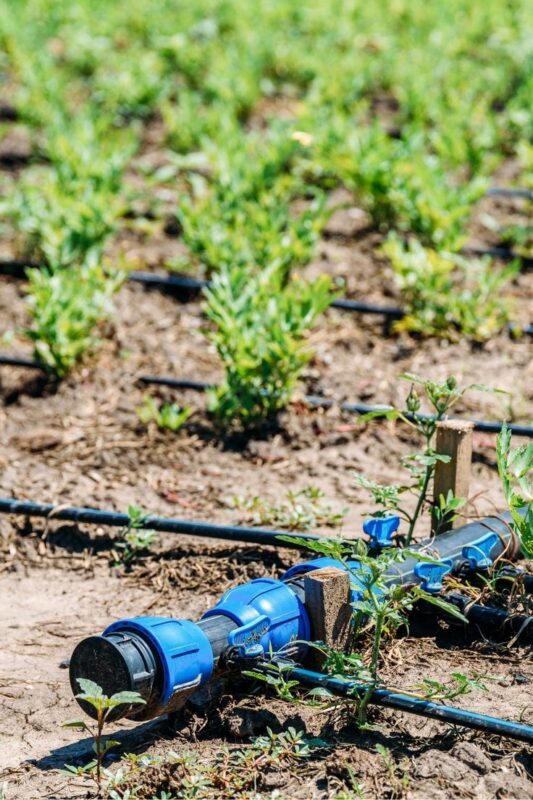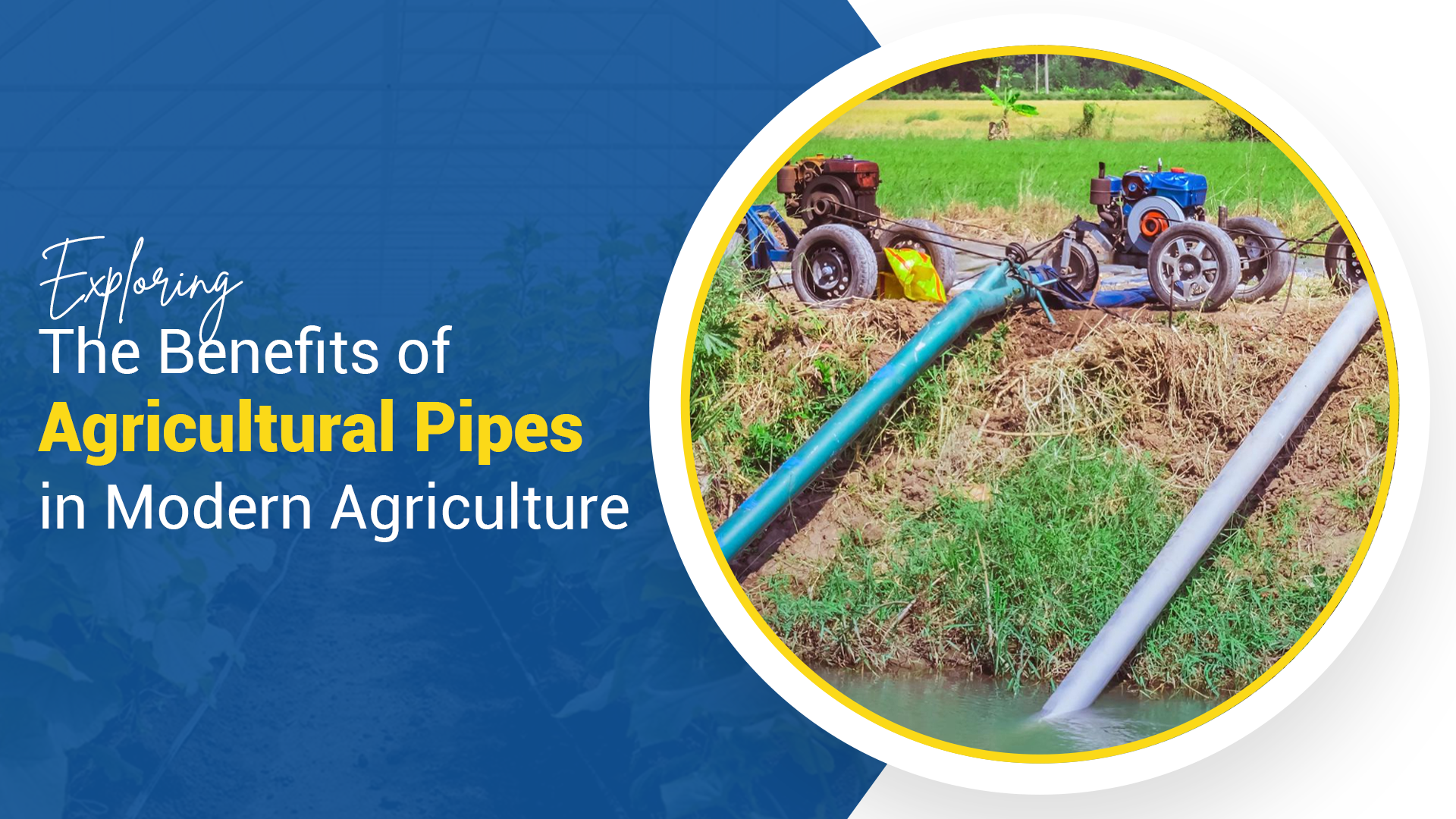One of the most important role of agricultural pipes in agricultural field. as the agricultural industry is ever evolving and there is constant need of efficiency and sustainability for food and resource conservation. However, agricultural pipes are best to cater the increasing need of improving irrigation systems, drainage and overall productivity of farm. These pipes are designed to ensure water management practices that enhances crop yield while conserving precious resources. With this blog, we are going to explore agricultural pipes, their benefits, types and their role in sustainable farming.
What are Agricultural Pipes?

Agricultural water pipe fittings are specially prepared conduits that are designed to facilitate the efficient transportation of water, nutrients and often times air across farming fields. However, they are an indispensable element of modern farming and designed to supply water where it is limited or uneven. Not only this, but these pipes are used to cater irrigation, drainage and distribution needs ensuring that crops receives optimal conditions for growth.
Benefits of Agricultural Pipes
There are many benefits of agricultural pipe fittings lets take a look at them:
- Enhanced irrigation efficiency: agricultural pipes are very useful to streamline the process of water distribution. This helps farmers to irrigate their crops with precision. Irrespective of surface irrigation system or advanced drip irrigation, these pipes are best to deliver water which reduces water wastage and prevent from overwatering.
- Water conservation: the next benefits of agricultural pipes and fittings is water conservation as we cant ignore it. These pipes are really useful for farmers to minimize water wastage by delivering water directly to roots of the plants.
- Improved crop health: agricultural piping solution are designed to deliver water to the fields in uniform fashion. This helps to prevent water stress on crops. While proper irrigation leads to healthier plants and better yields which gives benefits to both farmers and consumers.
- Soil erosion control: the next benefit of agricultural water pipe fittings is in soil erosion control. As drainage pipes plays a crucial role for preventing soil erosion which is a common challenge faced by farmers.
- Reduced labour and time: one of the most crucial step to save time and effort can be usage of agricultural pipes in automated and well designed irrigation system. This way farmers are enable to focus on other aspects of farming while relying on these pipes as they deliver consistent water supply.
- Cost effective solution: the other benefit of agricultural pipe fittings is that they are cost-effective investment. With reduced water wastage, minimal labour requirements and improved crop yield farmers can enjoy significant financial benefits.
- Environmentally friendly farming: agricultural pipes are helpful in efficient water usage and drainage systems contribution which gives out sustainable farming practices. These pipes are designed to reduce the reliance on large water reservoirs. Not only this, but these pipes are helpful to maintain environment by conserving water and preventing contamination of water bodies.
Now, that we have seen so much of agricultural pipes and fittings benefits, lets move to know about their types and their applications.
Types of Agricultural Pipes
Agricultural pipes have different types as they are designed with different materials and designs to suit different farming needs:
- PVC pipes: these pipes are lightweight, durable and resistant to chemicals. These pipes are generally used in agriculture for irrigation and drainage purposes. PVC pipes are easy to install and maintain which makes them a popular choice.
- HDPE pipes: HDPE does stands for High-density polyethylene pipes. These pipes are famous for their flexibility and high resistance to UV rays and chemicals. However, they are used for both surface and underground irrigation systems.
- LDPE pipes: this is next type of agricultural water pipe fittings which is low density polyethylene and commonly used for drip irrigation systems. However, they offer excellent resistance to environment stress and enable precise water distribution.
- Metal pipes: these pipes are less popular but used in specific areas of agriculture. These pipes are designed to offer high durability and temperature resistance. Metal pipes are generally best choice for high-pressure irrigation systems.
- Corrugated pipes: these are the next type of agricultural pipes designed for drainage purpose. However, these are helpful to handle large volume of water and are effective in areas with heavy rainfall.
These are some of the types of agricultural piping solutions. Now lets get to know about their applications.
Applications of Agricultural Pipes
There are many of the application of these pipes. Lets get to know them:
- Agricultural pipes are used for delivering water to crops through surface, sprinkler or drip irrigation methods.
- These pipes are designed to prevent waterlogging and soil erosion by channeling excess water away from fields.
- There are some of the pipes that are designed to carry liquid fertilizers which ensures uniform nutrient delivery to crops.
- Agricultural pipes are also used in fish farming to maintain water flow and oxygenation levels.
Agricultural pipes are not just pipes but they are more than that. They play a vital role of bridge to sustainable farming practices which benefits farmers, consumers and environment alike. Investment in agricultural pipes are smart investment as it improves farm operations.



